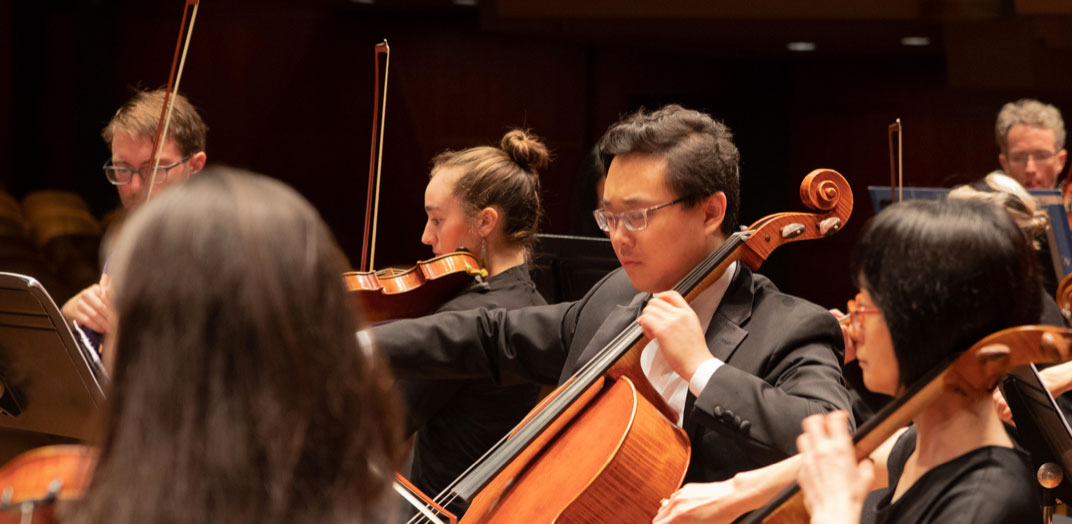
Concerts & Tickets
"In sweet music is such art": Liszt's "Orpheus"
Of Liszt’s thirteen symphonic poems, the fourth, Orpheus, is the most ravishingly romantic and lyrical. This sensuous orchestral effusion is surrounded on our concert by two rousing works from the world of opera: the overture to Verdi’s Un giorno di regno (one of only two comedies to come from Verdi’s pen), and the famous Bacchanale from Saint-Saëns’ Samson and Delilah. The concert opens with the overture to the opera Il trionfo della fedeltà by Maria Antonia Walpurgis (1724-1780), a brilliant composer whose music straddles the Baroque and Classical eras, and continues with the U.S. premiere of the Sinfonietta by Lithuanian composer Kristina Vasiliauskaitė, a composition suffused with striking colors and effervescent themes. The concert will also feature a unique Halloween presentation… don’t miss out on the surprise!
"The Sounds of Primitive Magic": Orff's "Carmina Burana"
Premiered in 1937, Carl Orff’s “scenic cantata” Carmina Burana lost no time establishing itself as the most popular choral work of the 20th century. The Philharmonic’s much-anticipated 2020 Carmina had to be delayed due to COVID, and we are thrilled to finally be able to offer it to our audiences again, in a performance featuring three superb vocal soloists and two of the region’s finest choirs. Ukrainian composer Victoria Vita Polevá has cited her religious faith and “love of humanity” as principal inspirations for her creations. The Philharmonic celebrates this major contemporary composer with the U.S. premiere of her symphonic poem Null, a work of staggering power in which time seems to stand still. The program begins with Morton Gould’s stirring Fanfare for Freedom, and guest soloist Mark Robbins brings his glowing artistry to Mozart’s Horn Concerto No. 4.
"Passionate and Fascinating": Schumann's Fourth
This festive program opens with the U.S. premiere of the sparkling Suite para Orquestra by Spanish composer Rosa García Ascot. Violinist Tokuji Miyasaka, winner of the Philharmonic’s 2024 Don Bushell Competition, is the dazzling soloist in the Violin Concerto No. 1 by Niccolò Paganini, the composer/performer whose legendary virtuosity caused contemporaries to suspect him of an alliance with The Devil. We conclude with Robert Schumann’s Symphony No. 4, a work in which the composer displays amazing structural unity wedded to his characteristic rhapsodic intensity.
"Completely Novel and Ingenious": Brahms' Fourth
The critic Eduard Hanslick was ecstatic in his praise of Brahms’ fourth and final symphony, lauding its “craftsmanship, strength, unbending consistency, and earnestness…” This simultaneously lyrical and robust symphony caps the Philharmonic’s season in a blaze of romantic vigor. Noted Seattle-based actress Sydney Maltese joins the orchestra for the U.S. premiere of Australian composer Jenny McLeod’s colorful setting of Hans Christian Andersen’s fairy tale The Emperor and the Nightingale, preceded by a performance of Percy Grainger’s rumbustious take on the English folk song Green Bushes.
